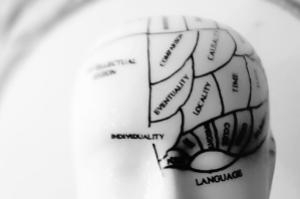8 things I wish people understood about having Type 1 diabetes
Published 10 May 2016

I was 25 and in the middle of my second year of law school when I started feeling tired, thirsty, and hungry. I had blurry vision all the time. I was lucky — I mentioned this to a friend, and she said whenever she complained about her eyes her dad tested her blood sugar, because that's how he got diagnosed with diabetes. I had a family history of both types, but I figured I was too old for Type 1 and too young and too much of a gym rat for Type 2. Still, I went to student health.
I explained my typical diabetes symptoms and family history to a person we will call "Helpful Nurse." Helpful Nurse decided the best immediate course of action would be to gaslight me aggressively in the five minutes it took to get the results back on my sugar test. "We don't usually get people in here 'thinking' they have 'diabetes.'" Cool story. "See, your vision isn't that bad." It's usually 20/19. "I'm sure you're just stressed about finals." Yeah, especially since I've spent most of the semester unconscious.
That's when we heard someone scream from the lab down the hall and around a corner, "Don't let her leave." The equipment in student health had a limited range. My test didn't generate a number. It just said "high." "High" means it was at least six times normal.
No, my life isn't over. It's a pain in the ass, it's terrifying, but the treatments will on average get me through the day.
I was waiting for a friend to take me to the ER when Helpful Nurse started talking about high- risk pregnancy and "not dying the way my grandmother died." Pregnancy? I have exams in a month. And I watched my T1 grandmother die. Thanks, Helpful Nurse, you can go now.
Of course this was a Friday. I spent the weekend eating nothing but tofu and zucchini with my sugar camped at three or four times normal, and had to cry on the phone to get a Monday appointment with an endocrinologist. The diagnosis was Type 1, colloquially "juvenile" or, if you're feeling rude, "brittle" diabetes. At least I had answers, and a prescription for insulin.
What is Type 1 diabetes? It means antibodies destroyed the beta cells of my pancreas that secrete insulin. You need insulin to turn food into energy. Since my body doesn't make its own anymore, I have to inject it. I strategically measure my insulin to keep my sugar as low as I can get it without going too low, like a life-or-death game of blackjack.
If my sugar goes low? I may pass out. I need to eat some delicious refined sugar like Sour Patch Kids or candy corn. Yum. If it goes high? I go high and I'm all droopy and slow and need to take more insulin, hydrate, and exercise to bring it down. That's pretty much the life of the 1.25 million Americans living with T1, including me.
Now despite all of my fears and worries, my husband and I have decided to have a baby, and I'm 26 weeks pregnant. We are exhausted. My sugar has been about as good as it could be (A1C 6.0), which has taken a heroic amount of work by both me and my husband. Not to brag but definitely to brag, I'm pretty good at this. And it still seriously blows.
Reporting on my disease is notoriously sloppy, so I have to deal with misconceptions from friends, family, and strangers all the time. Here's what I wish more people understood about what it's like to have Type 1 diabetes.
1) Part of my brain is dedicated to my blood sugar every moment, even if I'm sleeping or having fun
If you're old enough to have seen Apollo 13, you'll remember one dramatic part where they had to do a manual engine burn without navigation equipment. They tried to navigate by keeping Earth in the window. It bounced all over the place, but it was good enough. That's basically every second of every day for me; I'm doing something on manual that is supposed to be automatic, and "close enough" is the best I'm going to do.
A small portion of my brain is always worried about my sugar, even if I'm trying to sleep. I have a little device hooked up to me that buzzes if I go high or low. Usually I let it give me a decent range before it wakes me up. But while I'm pregnant, I've set it to "split Robin's arrow in twain" mode. If you're wondering whether it's fun to have a device that tells you every five minutes whether your baby's at risk for birth defects and death, spoiler alert, it isn't.
2) I don't want your pity; I just want your understanding. I'm handling this.
People weren't quite sure how to handle my diagnosis. I didn't get a ton of flowers or cards, although people sent me class notes for the classes I missed, and one friend did my dishes. I got the occasional pitying, "So is your life over now or what?" look. No, my life isn't over. It's a pain in the ass, it's terrifying, but the treatments will on average get me through the day.
And having Type 1 has often made me live like I'm on borrowed time: I've run 14 half-marathons, gotten married, gotten pregnant, passed the bar exam, and become a level 14 agent in the game Ingress (Resist!) since my diagnosis, to name a few. People who've had this since youth are preposterously competent at it and, by extension, often other things as well.
3) That said, if I do ask for help, you should probably consider it at least a minor emergency
I tend to come pretty prepared. I got through a whole marathon after my insulin pump failed at mile 5 because I had brought backup supplies to inject the old fashioned way. But I'm human, and I'll make an error in judgment from time to time.
Plus, I am completely at the mercy of technology, and if it has a glitch, I'll only figure it out based on the ensuing disaster. I will cleverly deduce my insulin pump is failing when my blood sugar is camping out at four times what it should be. Elementary, Watson. Now I have to spend the next six hours feeling like ass on a stick while it slowly comes back to normal.
My sugar doesn't like to cooperate with my plans either. It always seems like I'm high when I want a cookie and I'm low when I want to run. Insulin is not like some medicines; the dose changes every day. The amount of insulin I need to take varies based on not just what I'm eating but how much I exercised the previous day, my level of hydration, my lady hormones, the humidity, whether Venus is in retrograde, and the winner of last year's World Series. Any time I take a dose, it's at best an educated guess.
So when I realize something's gone wrong, I usually need to act fast before it's a catastrophe. If I'm spaced out and not making sense, or if I ask you to grab me a juice box, I probably need it in the next 15 minutes. I love Tina Fey, but I stopped watching 30 Rock after the episode where the diabetic goes into a coma because Liz Lemon doesn't bring him a pastry when he asks for one. That's not funny; that's my waking nightmare. Speaking of…
4) If I got trapped, stranded, or jailed, I'd probably die
If you're a diabetic and you get trapped in an elevator without your supplies, the firefighters come to get you out really, really quickly. (If you are not diabetic and use this for nefarious purposes, I will find you and end you.) I know from experience: One day I forgot a document in my apartment and ran back up with just my keys to get it. The elevator got stuck, and I had none of my equipment. I was not in there for long and I was okay, but now I don't even get on an elevator without at least something to eat.
Time travel to the past would kill me. I have to be good, because I'm pretty sure I'd die if they threw me in a jail cell for a few days (which has happened). If I were to get kidnapped by traffickers? Dead. Zombie apocalypse? Survive; find a pharmacy with a working fridge to loot insulin while locating a 1920s medical textbook that explains how to get insulin from a non-zombie cow.
5) Please be cool if I ask to stop what we are doing so I can handle my sugars
A few times when I've been out backpacking with my husband's family, I have gone low about half an hour after breakfast. We are just getting on the trail, and lame Laura the fun police hits the brakes. They are awesome about it. Sometimes they pretend like they wanted a break that soon anyway. This makes it so much easier for me, because one of the side effects of a low is anxiety. Also they don't want to carry me out and explain it to the cops.
Like I said above, even if I'm doing my best, it's not an exact science and things will happen, and I'll have to do something awkward like eat all the sugar packets on the dinner table. It's really helpful to me if you play it cool and are like, "I also am a connoisseur of raw sugar; let's get the server to bring over a shot glass of pineapple juice as a chaser." Pretend it's cool like when that guy starts singing on the subway and you just keep reading your book.
6) Type 1 and Type 2 diabetes are distinct illnesses, and your assumptions about both are probably wrong
Type 1 is an autoimmune disorder like multiple sclerosis. Type 2 is metabolic. They're not the same. Type 2 diabetes is a serious illness. The pseudo-truths and judgments people have heard about Type 2 are usually unfair and misguided. They are completely off base if applied to Type 1. There are people far more qualified than I to talk about life with Type 2 and I won't presume to speak for them, except to say that the obnoxious judgments and comments they get from people, I get too.
If you or someone you love is one of the diabetes concern trolls, let me stop you right here. Whatever pop media diabetes advice you've heard about either type, mostly television "doctors" who make money by fat shaming, don't make the mistake of thinking that means you know more than someone who actually has the illness.
If I ask you to grab me a juice box, I probably need it in the next 15 minutes
My illness is affected day to day by my lifestyle but was not brought on by lifestyle and definitely cannot be fixed with lifestyle changes. I was a young, athletic vegetarian, and my body betrayed me. I have zero interest in your weight loss advice for me, and, no, I don't have weight loss tips for you. I can't go on a diet and take a pill. Yes I'm sure it's Type 1; no it's not just a "classification." No, I was not sedentary in law school. Cinnamon will definitely not cure me, whatever wonders it did for your friend. If I don't inject insulin, I die. Quickly.
Unless you are a child or a fellow diabetic, I actually don't want to spend the next 15 minutes discussing my high-risk pregnancy with you, random stranger; you can go sit in the corner with Helpful Nurse. I definitely don't want to hear your horror stories about miscarriages, birth defects, and lost feet.
My favorite: I've had people suggest to me that my type of diabetes is "better," because at least I'm not fat. I can't even. Seek help. I've had some friends who were very lucky in catching their Type 2 diabetes early. These friends tell me just how easily they turned around prediabetes or early stage Type 2 with some diet and exercise modifications or medications (which can help some but not all Type 2 diabetics). Congratulations. I'm happy for you, but also more than a little jealous.
Jealousy aside, Type 2s, you and I are united against concern trolls who don't know what they're talking about. That said, if you're newly diagnosed with either type and want to know what I know about sugar control, or if you live with diabetes and know something I don't, by all means let's talk.
7) I do not care about being stabbed with needles. At all. At. All.
My fellow T1 friends and I have a good scoff and chuckle whenever news articles come out about Type 1 that seem really focused on how terrible needles must be. Articles about breakthrough treatments to improve control have dramatic headlines about how the treatment is "painless" or "injection-free." HA!
Look, if the cure for diabetes was to stab myself with a rusty ice pick every hour, I would do it. Don't get me wrong, stabbing yourself in the stomach is counter-instinctual. But it is way — way — less bad than untreated diabetes.
The short-term effects of highs are blurry vision, fatigue, and unquenchable thirst. The short-term effects of lows are dizziness, anxiety, rapid heartbeat, clumsiness, and general stupidity. Without sugar a low can lead to dementia-like symptoms. The long-term effects of both are numb feet, miscarriages, or a lot of barfing followed by a coma. People seek injections for far less. Don't look at me and say, "Oh I could never do that." You couldn't prick yourself with a needle to avoid violent vomit death? Of course you could, and would; quit your nonsense.
8) I am super grateful for all the treatments that are available to me in the 21st century. But it is really far from a cure.
My grandmother Dorothy Dann Bower brought three children to term in the 1950s measuring her blood sugar by dropping a color-changing tablet into her morning pee and dosing with cow insulin. The doctors told her while she was pregnant not to bother naming my father, and definitely not to decorate the nursery. Sensitivity training was not a thing back then. He's 60, and they did name him; we don't just point and go "that guy."
If she had gotten diabetes only a few years earlier she would have died and I wouldn't exist. I cannot even begin to describe the ways in which I have it better than her thanks to technology. I have a device that guesses my blood sugar every few minutes and buzzes if it thinks I'm in trouble. It's not totally accurate, but it's better than a color chart. I have a remote control–operated pod on my body that gives me a little insulin all the time. These devices are miracles. And by miracles I mean the product of decades of hard work and innovation.
But as I hope I've made clear, this is really far from a cure. I'm an automatic high-risk pregnancy. I'm still scared to let myself believe my baby will turn into my child. If I'm without my devices I'm afraid to sleep. The medical industry in America is for profit, and I worry that the incentive is to keep me on life support forever instead of give me a cure. You can charge someone a lot of money for an antidote. Fortunately doctors and scientists generally are motivated by passion to innovate more than raw cash, and there are hundreds of scientists looking for a cure that will let me wait on a stuck elevator with mild impatience like a normal person.
A cure would have to grow me new beta cells and keep my body from attacking them again. Anything that functions better than what I have now I will take like water in the desert, but I'll have to continue my mostly invisible and constant struggle in the meantime.
Laura Bower Braunsberg is an attorney practicing insurance defense law in Wilmington, Delaware. She was diagnosed with Type 1 diabetes in 2009 at age 25 while attending the University of Virginia School of Law. She also serves as the coach of the University of Delaware Mock Trial Team and volunteers with the Office of the Child Advocate representing children in foster care and Delaware Volunteer Legal Services representing victims of domestic violence.
VOX
Comments
You will also like

Fighting schizophrenia symptoms: a long journey against paranoia after detainment and denial
12 Dec 2018 • 7 comments
See the testimonial

Diabetes: Discrimination, Professional Life, Plan Ahead... What do patients say?
9 Nov 2018 • 13 comments
Read the article
Read the article
See the testimonial

 Facebook
Facebook Twitter
Twitter
